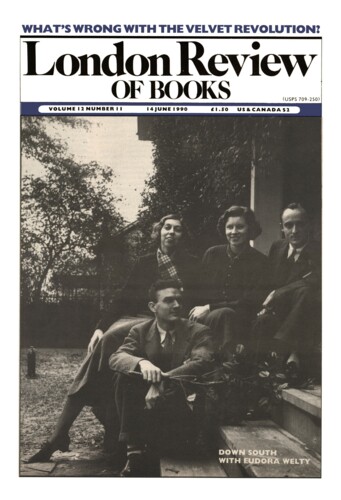Richard Bowring
Richard Bowring Professor of Modern Japanese Studies at Cambridge, is the author of a study of Murasaki’s novel The Tale of Genji.
Japanese Power
Richard Bowring, 14 June 1990
At the last triennial meeting of the European Association for Japanese Studies in late September 1988 the major talking-point was the extraordinary outburst of anti-Japanese feeling which in parts of the British press greeted the news of Emperor Hirohito’s final illness. Later in the new year, as the gruesome saga of the Emperor’s coma continued, we heard that the journalist Edward Behr had just finished a BBC documentary which promised, with exquisite timing, to blow the lid off the ‘Hirohito myth’. Behr had apparently discovered some incriminating evidence which historians had hitherto either missed or wilfully ignored. One waited in apprehension, but the supposedly key passages from ‘newly-discovered’ diaries turned out to be the same old tired mistranslations from long-published sources that Bergamini had tried to pass off as history in the early Seventies. Yet again, it seemed that the overwhelming desire for a scapegoat was being linked to the notion that Hirohito had been a Japanese version of Hitler. Much easier to assume that the whole world operates as ‘we’ do than to inquire into the nature of the imperial institution in Japanese history. It was as if in 1952, on the death of King George VI, the German press had offered up fervent prayers that the Firebomber of Dresden would go to his just reward in Hell, or as if the Argentinians were to hold the Queen personally responsible for the Belgrano.
Literary Theory
17 October 1985
Pieces about Richard Bowring in the LRB
Fan-de-Siècle
Brigid Brophy, 6 October 1983
A small ad in Private Eye seeks a companion ‘sexy, feminine and discrete’. Siamese twins, I suppose, need not bother to apply. It is harder to divine why this translation of...
Read anywhere with the London Review of Books app, available now from the App Store for Apple devices, Google Play for Android devices and Amazon for your Kindle Fire.
Sign up to our newsletter
For highlights from the latest issue, our archive and the blog, as well as news, events and exclusive promotions.


